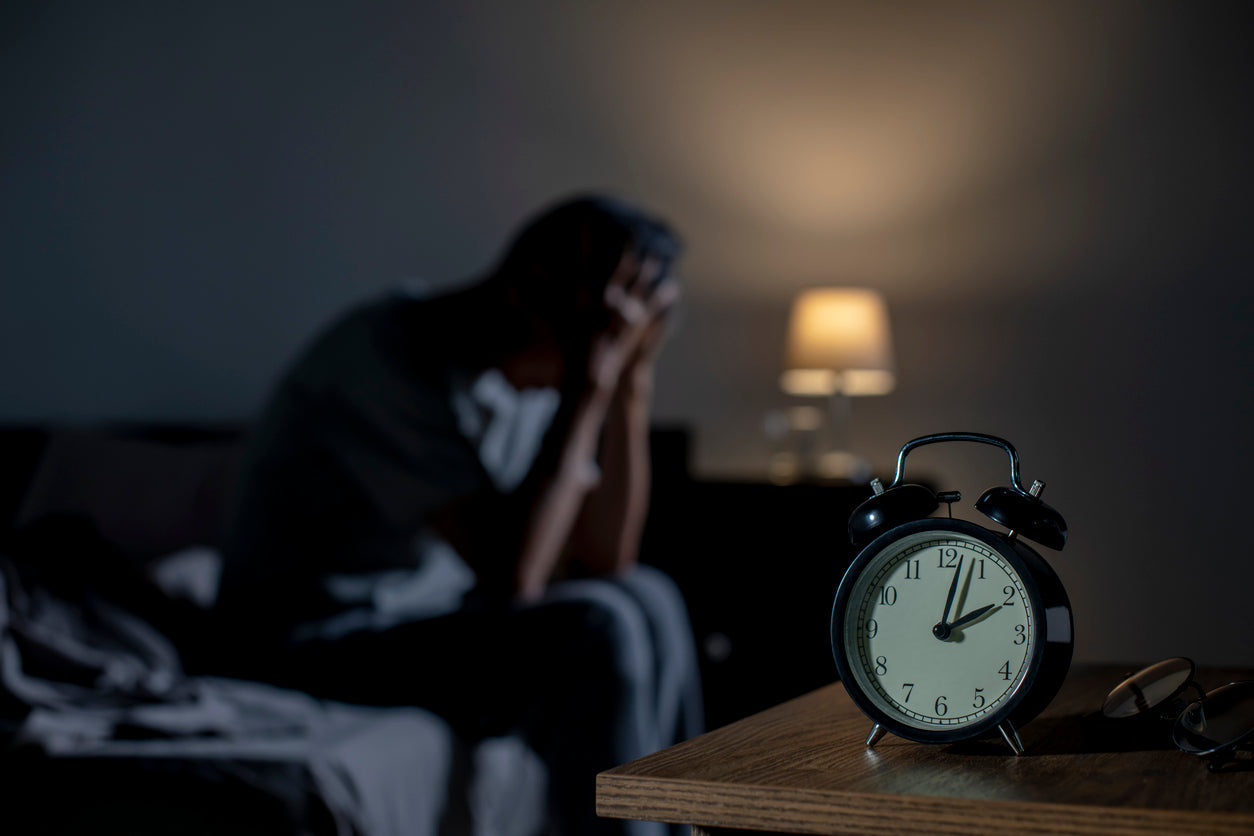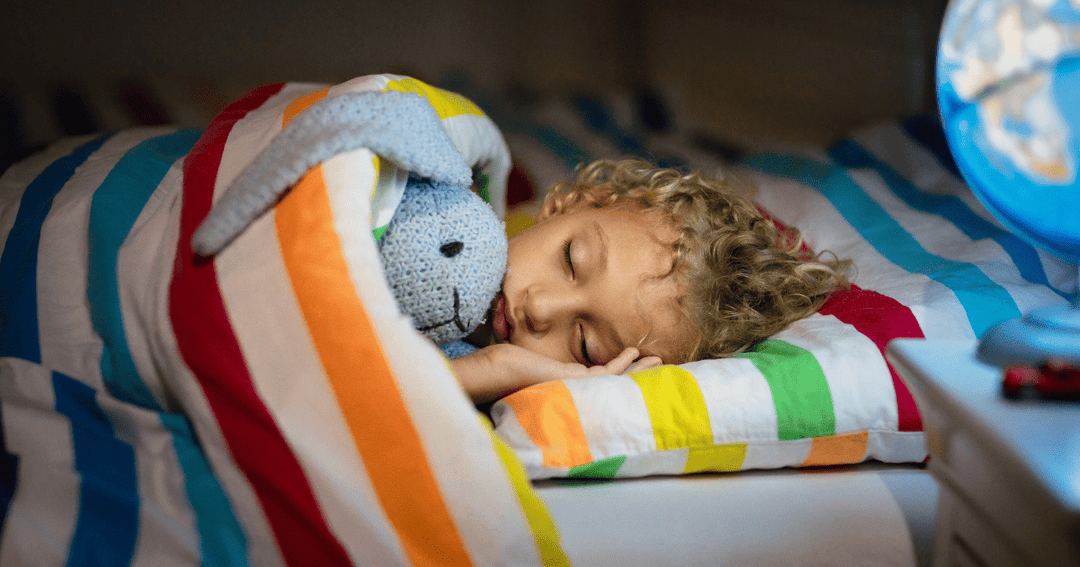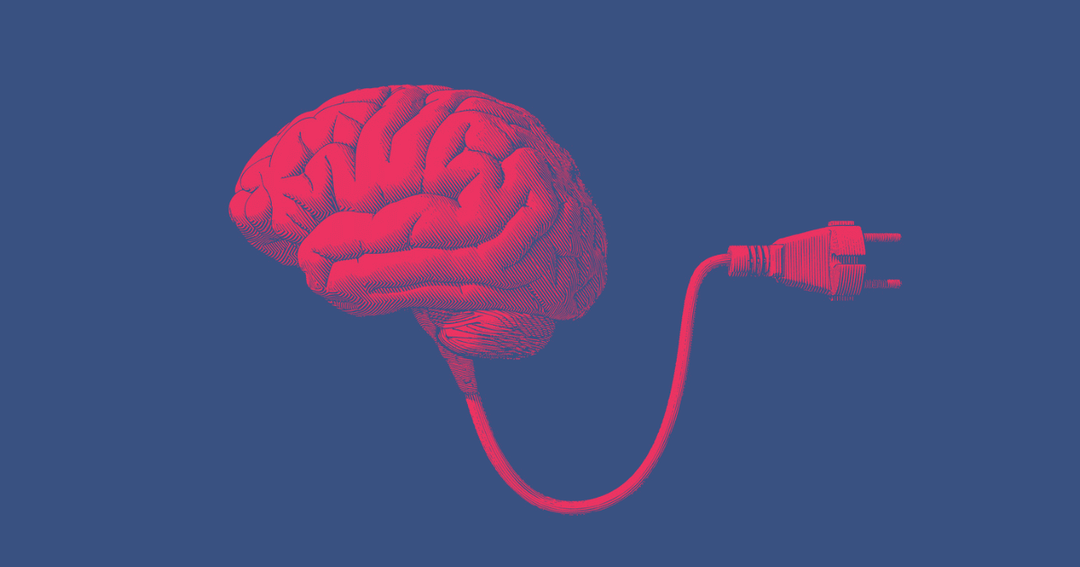Debunking Common Sleep Myths: What Really Works?

In today's fast-paced world, getting enough quality sleep has become a challenge for many people. The constant demands of work, family, and social obligations can leave you feeling exhausted and struggling to get the rest you need. To make matters worse, there's a lot of conflicting information out there about what promotes good sleep, making it difficult to separate sleep facts from fiction. If you've ever found yourself tossing and turning at night, wondering if you're doing something wrong or if there's a secret to better sleep, you've come to the right place.
The truth is, sleep is essential for overall health and well-being. It plays an important role in physical and mental restoration, helping you feel refreshed, alert, and ready to seize the day ahead. However, many people struggle with sleep due to various factors, including stress, poor sleep habits, and misconceptions about what actually works. In the following sections, we'll address common sleep myths and discuss evidence-based strategies for improving sleep, including how our product Sip2Sleep® can be a complementary approach within a comprehensive sleep improvement plan.
Key Takeaways
- Individual sleep needs vary, but most adults require 7-9 hours per night for optimal functioning.
- Consistent sleep schedules, relaxing bedtime routines, and a cool, dark sleep environment are crucial for quality sleep.
- Regular exercise, stress management techniques, and limiting electronic device use before bed can significantly improve sleep.
- Sip2Sleep® is a safe, non-habit forming sleep aid that can complement evidence-based sleep improvement strategies without causing adverse effects or dependency.
Debunking Common Sleep Myths
Myth 1: Everyone Needs Exactly 8 Hours of Sleep
One of the most persistent sleep myths is the idea that everyone needs exactly 8 hours of sleep per night. While this is often cited as the ideal amount, the truth is that individual sleep needs vary depending on age and personal factors. Experts recommend that adults aged 18-64 aim for 7-9 hours of sleep per night, while older adults (65+) may need slightly less, around 7-8 hours.
Fact: Sleep needs are individual and can vary based on age, genetics, and lifestyle factors. While 7-9 hours is a general guideline for adults, some may need more or less to feel fully rested.
Myth 2: You Can Catch Up on Lost Sleep
Have you ever found yourself burning the candle at both ends, thinking you'll just catch up on sleep later? Unfortunately, it's not that simple. When you consistently deprive yourself of sleep, you accumulate what's known as a sleep debt. While it's possible to recover some lost sleep in the short term, chronic sleep deprivation can have lasting effects on your health and well-being.
Fact: While you can recover some lost sleep, chronic sleep deprivation has cumulative effects on your health and cognitive function. Consistently prioritizing sleep is the best approach for maintaining overall well-being.
Myth 3: Snoring is Harmless
Snoring is often dismissed as a harmless annoyance, but it can actually be a sign of a more serious sleep disorder called sleep apnea. Sleep apnea is a condition in which a person's breathing is repeatedly interrupted during sleep, often due to a collapse of the upper airway.
Fact: Snoring can be a sign of sleep apnea, a serious sleep disorder that can lead to health problems if left untreated. If you consistently snore loudly or experience daytime fatigue, it's worth discussing with a healthcare professional.
Myth 4: Alcohol Helps You Sleep
Many people turn to alcohol as a way to unwind and fall asleep faster, but this is a misguided approach. While alcohol may indeed lead to quicker sleep onset, it actually disrupts the overall quality and structure of your sleep.
Fact: Alcohol may help you fall asleep faster, but it disrupts sleep quality and leads to more nighttime awakenings. It's best to avoid alcohol close to bedtime for optimal sleep.
Myth 5: A Warm Bedroom is Best for Sleep
It's a common belief that a cozy, warm bedroom is ideal for sleep, but the opposite is actually true. Your body temperature naturally drops as part of the process of falling asleep, and a slightly cool room can facilitate this process.
Fact: A slightly cool bedroom temperature between 60-67°F (15-19°C) is best for promoting sleep. A too-warm room can interfere with your body's natural temperature regulation and disrupt sleep quality.
Myth 6: Exercise Right Before Bed Will Keep You Up All Night
Exercise is often touted as a way to improve sleep quality, but many people worry that working out too close to bedtime will leave them feeling wired and unable to fall asleep. While it's true that vigorous activity can be stimulating, the timing of your workouts is key.
Fact: Regular exercise can improve sleep quality, but it's best to avoid vigorous activity close to bedtime. Low-intensity exercises like yoga or stretching can be relaxing before bed.
Myth 7: Watching TV in Bed Helps You Wind Down
In our technology-driven world, it's tempting to curl up in bed with your favorite show or scroll through social media as a way to relax before sleep. However, the blue light emitted by electronic devices can interfere with your body's natural sleep-wake cycle, making it harder to fall asleep and stay asleep.
Fact: The blue light from electronic devices can suppress melatonin production and interfere with sleep. It's best to avoid screens for at least an hour before bed and opt for relaxing, screen-free activities instead.
Myth 8: Napping Makes Up for a Lack of Sleep
Napping can be a great way to boost daytime alertness and performance, but it's not a substitute for adequate nighttime sleep. While strategic naps of 20-30 minutes can provide benefits like improved mood, increased alertness, and better cognitive function, relying on naps to make up for chronic sleep deprivation is not a sustainable solution.
Fact: Short naps can be beneficial, but they don't replace the need for adequate nighttime sleep. Napping for too long or too late in the day can actually interfere with your ability to fall asleep at night.
Myth 9: Eating Right Before Bed Will Give You Nightmares
Have you ever been told that eating certain foods before bed will lead to nightmares? While heavy meals close to bedtime can cause discomfort and disrupt sleep, there's no scientific evidence to suggest that they directly cause bad dreams.
Fact: Nightmares are more likely caused by stress, anxiety, or trauma than by specific foods. However, heavy meals close to bedtime can cause indigestion and disrupt sleep quality, so it's best to avoid large meals 2-3 hours before bed.
Scientifically Proven Methods for Better Sleep
Now that we've debunked some common sleep myths, let's explore evidence-based sleep tips for improving sleep quality and duration.
- Practice good sleep hygiene: Establish a consistent sleep schedule, create a relaxing bedtime routine, and ensure your sleep environment is dark, quiet, and cool.
- Consider Cognitive Behavioral Therapy for Insomnia (CBT-I): This structured program helps identify and change negative thoughts and behaviors surrounding sleep, promoting healthier sleep patterns.
- Engage in relaxation techniques: Deep breathing exercises, progressive muscle relaxation, and meditation can help calm the mind and body, making it easier to fall asleep and stay asleep.
- Manage light exposure: Get plenty of natural sunlight during the day to regulate your sleep-wake cycle, and avoid bright screens and artificial light close to bedtime.
- Explore Sip2Sleep®: Sip2Sleep® is a natural sleeping aid made with Tart Cherry Extract and Venetron®. These ingredients have been supported by multiple clinical studies and can help improve sleep quality and reduce insomnia severity. You can take Sip2Sleep by putting a few drops directly under your tongue. Sip2Sleep® is non-prescription, non-habit forming, and doesn't contain harmful ingredients, making it a safe and effective addition to your comprehensive sleep improvement plan.
The Bottom Line
Getting enough quality sleep is essential for overall health and well-being, but it's not always easy to achieve. By understanding the truth behind common sleep myths and implementing evidence-based sleep tips, you can significantly improve your sleep quality and duration. If you consistently struggle with sleep despite making lifestyle changes, don't hesitate to consult a healthcare professional for personalized advice and to rule out underlying sleep disorders.
Remember, while our products like Sip2Sleep® can be helpful tools within a comprehensive sleep improvement plan, they work best when combined with healthy habits, consistency, and a commitment to prioritizing rest.
Frequently Asked Questions
Q: How much sleep do I really need to feel my best?
A: Sleep needs vary from person to person, but most adults require between 7-9 hours per night to function optimally. Pay attention to how you feel during the day and prioritize getting enough sleep to support your physical and mental well-being.
Q: What should I do if I can't fall asleep within 20 minutes of going to bed?
A: If you find yourself unable to fall asleep within 20 minutes, the best approach is to get out of bed and engage in a relaxing activity, such as reading or listening to calming music, until you feel drowsy. This helps associate your bed with sleep rather than wakefulness and can make it easier to drift off when you return to bed.
Q: Is it okay to take a nap during the day if I'm feeling tired?
A: Strategic naps can be beneficial for boosting alertness and performance, but it's important to keep them short (20-30 minutes) and to avoid napping late in the day, as this can interfere with your ability to fall asleep at night.
Q: How can Sip2Sleep help me sleep better?
A: Sip2Sleep® is a natural sleeping aid made with Tart Cherry Extract and Venetron®. These ingredients have been supported by multiple clinical studies and can help improve sleep quality and reduce insomnia severity. It is a non-prescription, non-habit-forming sleep aid that can be safely taken nightly as part of a comprehensive sleep improvement plan. It does not contain any harmful, addictive ingredients, and will not cause you to develop dementia or Alzheimer's disease. By incorporating Sip2Sleep® into your nightly routine alongside other evidence-based sleep tips like maintaining a consistent sleep schedule, practicing relaxation techniques, and creating a sleep-conducive environment, you can improve your sleep quality and duration without the risk of adverse effects or dependency.






